Stadia, the Linux-powered game streaming service from Google is just about to coming up on the one year mark since it originally went live for early backers. They're now releasing new features again and talking about the future.
Only recently did Stadia hit 100 games and gain Family Sharing but there was still a lot missing. They're finally starting to bridge the feature gap now though, with the release of more features this week. Firstly, you can now actually directly message other Stadia users from the friends list, you can directly share screenshots and clips on mobile and the web browser, when video capturing with the built-in Stadia feature it will now capture game voice chat too and they finally rolled out proper profiles along with profile links.
Here's an example of their new profile system:
Stadia actually now genuinely feels like more of a proper platform, one year later. Still no search bar though, baby steps. It's quite strange though how Google are known for their search and their own game store like this doesn't have it a year later. Just how long will they wait before their store fills up to offer it?
Looks like some new country support might also be finally rolling out soon, as their Terms of Service got updated. For the original set of countries, they're all still showing November 5, 2019 but there's a few others like Poland, Portugal, Slovenia, Romania, Hungary and others that are now showing December 1, 2020.
On top of all that, Google reps from Stadia did presentations for the MEGAMIGS Canadian conference, with some highlights now up on this YouTube List. One of the interesting videos was the introduction to Stadia Games & Entertainment where Julien Cuny the Portfolio Director for Stadia Games & Entertainment gave an overview including some important info. One big thing is that they're looking for games that are planned to come out in 2023 and beyond, showing they have a long-term plan ahead for Stadia.
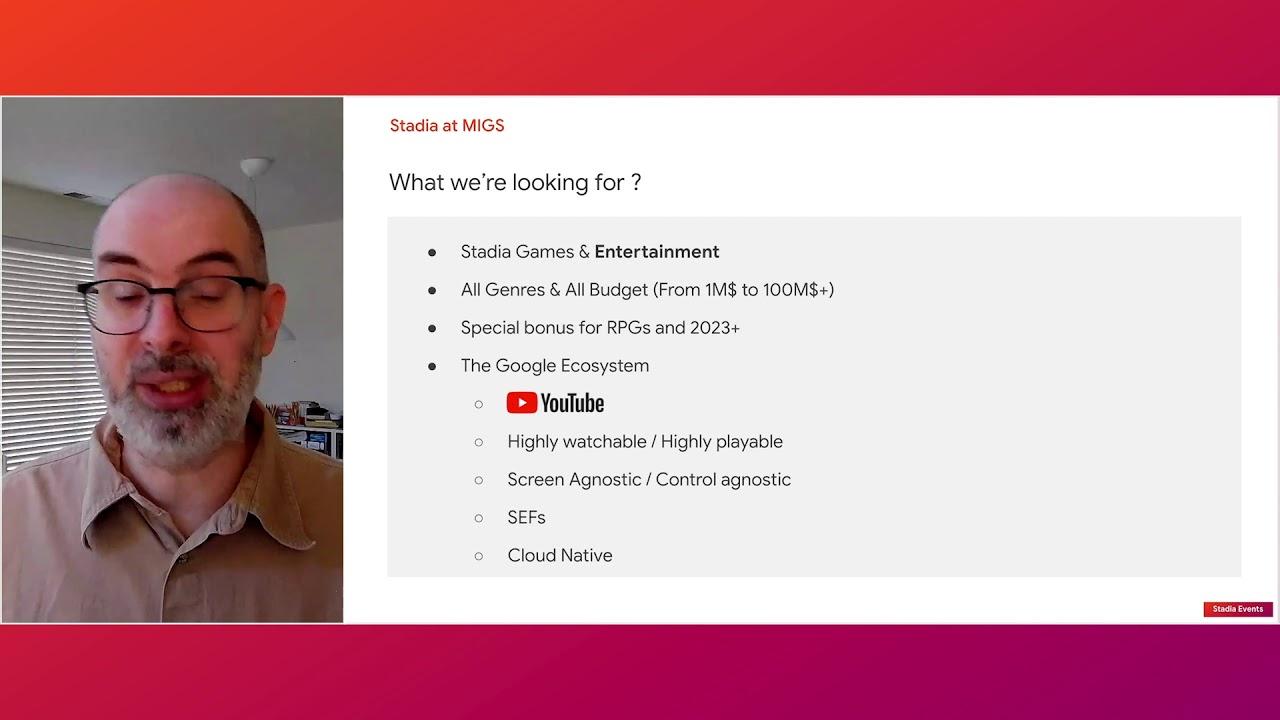
Direct Link
Another interesting talk is the "A Year in the life of a Stadia Game Developer", which goes over some of the details of what developers need to get their games onto Stadia. It's not a deeply technical talk and quite light but interesting nonetheless, including a mention that if what you have works on Linux it should just work on Stadia and they talk a bit about Vulkan too. Apart from that, they dive into how getting a game onto Stadia itself works and it seems pretty quick with developers able to quickly pop a build online and just get testing.
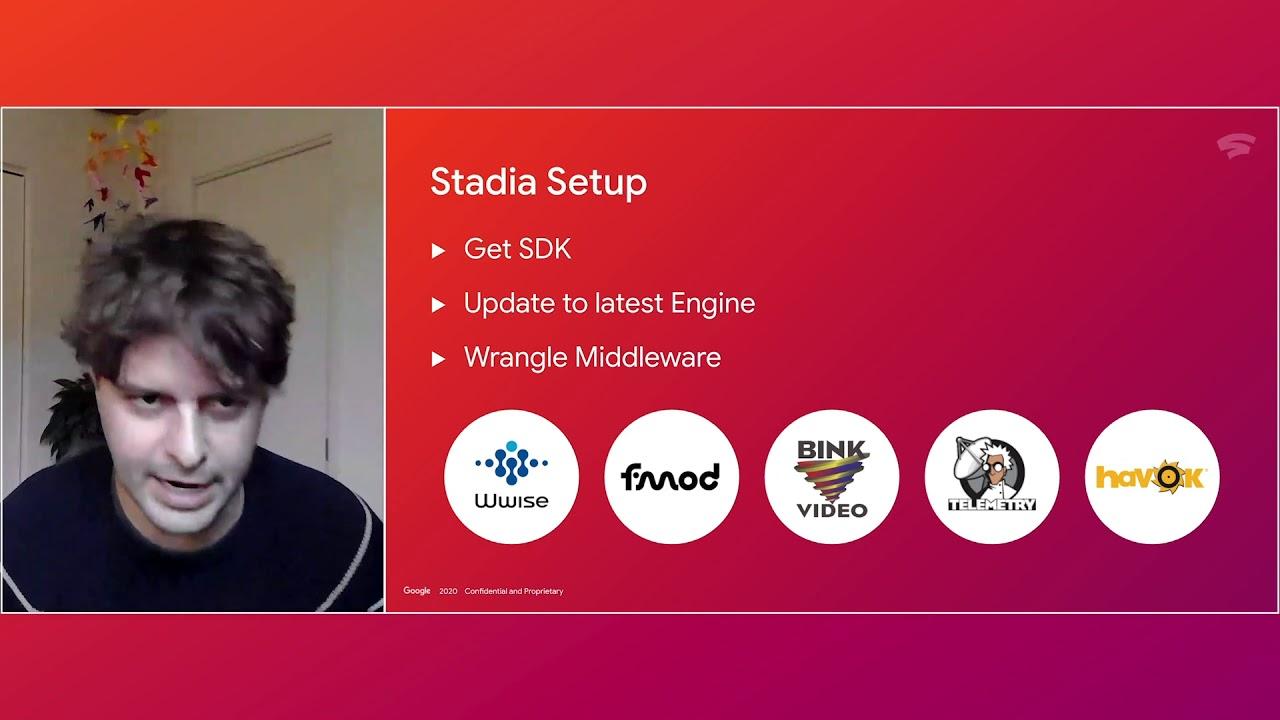
Direct Link
Poland, Portugal, Slovenia, Romania, Hungary and others (...) are now showing December 1, 2020.Stadia here I come 😎
Last edited by AsciiWolf on 17 Nov 2020 at 11:48 am UTC
Those videos show that there is a long term plan for Stadia. Kinda kills the "hur hur Google will just kill it soon" crapI'd imagine that they had big plans for Google Plus, too.
You have to pay a monthly fee AND buy the games.No you do not. I don't really get how this needs to be cleared up so often. Stadia is a store, you can buy games. Stadia Pro is an optional subscription to get regular free games (playable while your sub is active - no different to PS Plus) and 4K support. Stadia Pro is not required.
Last edited by Liam Dawe on 17 Nov 2020 at 4:47 pm UTC
You have to pay a monthly fee AND buy the games.No you do not. I don't really get how this needs to be cleared up so often. Stadia is a store, you can buy games. Stadia Pro is an optional subscription to get regular free games (playable while your sub is active - no different to PS Plus) and 4K support. Stadia Pro is not required.
Ok. I trust you on that Liam. Thank you.
And where does that come from? The stadia website.
The way the Stadia website is written and presented let you think you HAVE to get to pay to use it. Honestly that is on Google marketing team for messing that up so badly. And that is the case in every language Stadia is translated to.
!link
!link
That is the first thing you see on Stadia when you land on the page. They are hiding on purpose that the service is "free" to some extent. On the first page there is literally no clear information on Stadia being "free". they only present the monthly fee and the Store, letting you think you have to pay for Stadia Pro.
Last edited by DerpFox on 17 Nov 2020 at 4:58 pm UTC
Those videos show that there is a long term plan for Stadia. Kinda kills the "hur hur Google will just kill it soon" crapEveryone has a plan until they get punched in the face (by market conditions).
Also, someone is still using Bink video? Why on earth when there are free high quality video codecs today?
Last edited by Shmerl on 17 Nov 2020 at 5:28 pm UTC
Destiny 2 for all
Starting November 19 at 9 AM PT, everyone on Stadia can play Destiny 2 for free. This play for free version of Destiny 2 begins your legend with a large variety of activities – from cooperative quests to competitive modes, challenging endgame activities, and more. Even if you’re not a Stadia Pro member, you’ll be able to take part in the core Destiny 2 experience.
Also, The Immortals Fenyx Rising demo is back, from right now until 21 Dec.
The way the Stadia website is written and presented let you think you HAVE to get to pay to use it. Honestly that is on Google marketing team for messing that up so badly. And that is the case in every language Stadia is translated to.It definitely still needs improvements.
I find if you scroll down, it's made clearer where it explicitly says "The Stadia platform is free to join" and that you can buy games.
Is there a list of games that came out for desktop Linux because Staida effort made it easier?
The list so far of games that have come to desktop Linux from Stadia is:
The list so far of games that have come to desktop Linux from Stadia is:
That's too short for Stadia being around for a year.
And expect it to remain that way until the Linux desktop share is much higher.The list so far of games that have come to desktop Linux from Stadia is:
That's too short for Stadia being around for a year.
And expect it to remain that way until the Linux desktop share is much higher.
I don't think that's going to help. Let's say Linux usage will grow ten fold. It will still not be something (some) publishers care about, because it's not about market size alone as was discussed a few times already. Stadia's market size is smaller than desktop Linux one at present.
Publishers want to get extra incentives (extra money basically) to release for something that's not the vast majority. That's the main barrier I think. And do you expect Linux to replace Windows to become the vast majority? Only then such publishers would agree to release for Linux without those incentives. I don't think that's going to happen.
So let's say Linux will reach 30% usage. We will still be ignored by publishers which can only grok platform owner model.
I see two ways to deal with it.
1. Someone will step up as such steward of Linux gaming (Valve tried in the past, but currently isn't putting their weight behind that).
2. Just use Wine to handle all games released by publishers who ignore Linux (Valve seems to put a lot of weight behind this option now).
Last edited by Shmerl on 17 Nov 2020 at 10:30 pm UTC
I think you are too pessimistic. Well, not that I see an obvious path to that tenfold increase, but consider: Far as I can tell, nearly as many games are published Linux native as OS/X native, and they have at least five times our desktop market share. So I don't think we can complain too much about how we're treated; many game developers really want to release for Linux.And expect it to remain that way until the Linux desktop share is much higher.
I don't think that's going to help. Let's say Linux usage will grow ten fold. It will still not be something (some) publishers care about, because it's not about market size alone as was discussed a few times already. Stadia's market size is smaller than desktop Linux one at present.
Publishers want to get extra incentives (extra money basically) to release for something that's not the vast majority. That's the main barrier I think. And do you expect Linux to replace Windows to become the vast majority? Only then such publishers would agree to release for Linux without those incentives. I don't think that's going to happen.
So let's say Linux will reach 30% usage. We will still be ignored by publishers which can only grok platform owner model.
I see two ways to deal with it.
1. Someone will step up as such steward of Linux gaming (Valve tried in the past, but currently isn't putting their weight behind that).
2. Just use Wine to handle all games released by publishers who ignore Linux (Valve seems to put a lot of weight behind this option now).
Tenfold would be about 10%; I think given the state of the Linux ecosystem these days, if we were at 10% we'd be getting a LOT of games, with probably even a fair number of AAA, and key anti-cheat players would probably be making a serious effort to at least get anti-cheat to work on Proton.
Quite likely none of it would have that much to do with Stadia, except that some of the developers releasing games on Linux would have gained experience in how to do it from doing Stadia releases.
Far as I can tell, nearly as many games are published Linux native as OS/X native, and they have at least five times our desktop market share.
macOS is controlled by Apple, so it fits the mental model of "there is a platform owner" for these publishers. They release for it even though macOS is horrible for gaming unlike Linux in general. So may be it's too pessimistic, but I view these publishers as very backwards thinking in general. Of course it would be easier to try to reason with some of them, if Linux will reach 10%, 20% and so on.
Last edited by Shmerl on 18 Nov 2020 at 12:47 am UTC
I almost said that myself. So MacOS fits that mental model, and has five times our market share, and yet we have nearly as many games. The "platform owner" psychology cannot then be all that dominant in publishers' decisions what platforms to port to.Far as I can tell, nearly as many games are published Linux native as OS/X native, and they have at least five times our desktop market share.
macOS is controlled by Apple, so it fits the mental model of "there is a platform owner" for these publishers.
Either that, or from game publishers' viewpoints Linux effectively does have a "platform owner" -- Valve. Not that they in any way own Linux, but if you're a game publisher and you're having a problem with Linux as a gaming platform, who do you go to? Once upon a time, nobody. But nowadays, you can go to Valve, and they're more likely to get it fixed than Apple is to fix a gaming related problem with MacOS. So maybe publishers have just sort of placed Valve in that "platform owner" niche in their minds . . .
Last edited by Purple Library Guy on 18 Nov 2020 at 8:13 am UTC
Being a big RPG player myself lack of role-playing games on Stadia is one of the reasons I ignored it after finishing the two month test period.
Sure, the upcoming Cyberpunk 2077 and Baldur's Gate 3 should help, but still there are too few offline RPGs in their library.
Would be nice to seem more strategy games there too. Though, I understand that, sadly, it is currently a niche genre...
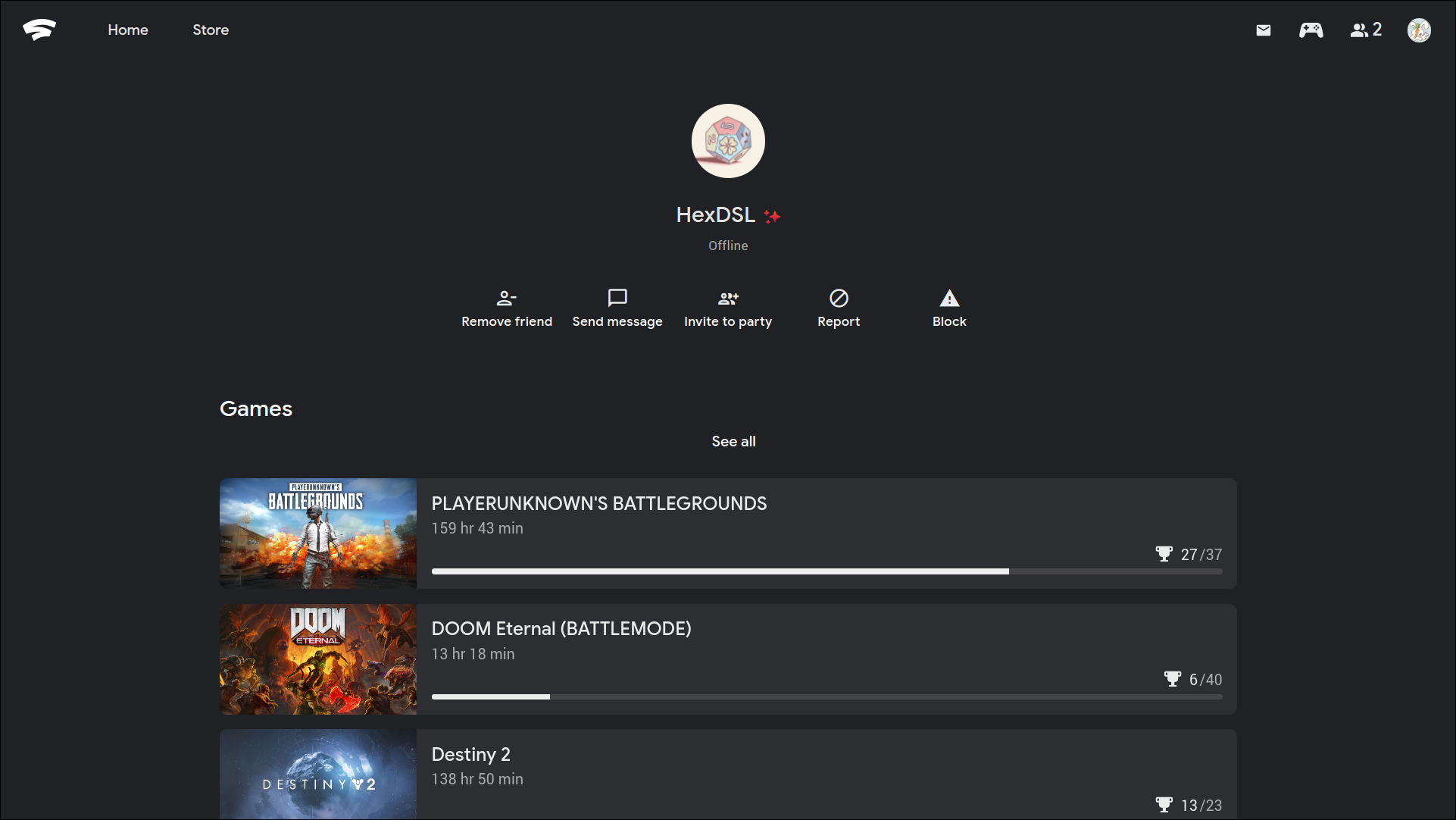



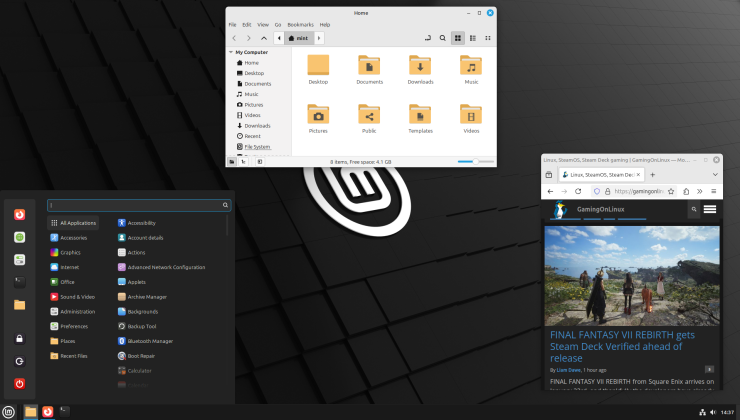





 An idiots guide to setting up Minecraft on Steam Deck / SteamOS with controller support
An idiots guide to setting up Minecraft on Steam Deck / SteamOS with controller support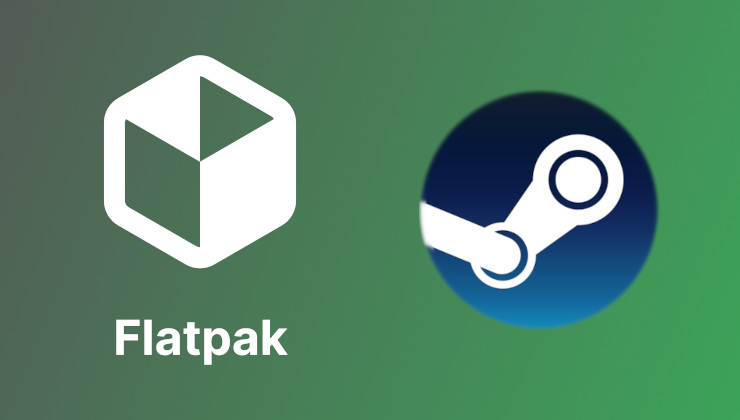 How to install extra software, apps and games on SteamOS and Steam Deck
How to install extra software, apps and games on SteamOS and Steam Deck
See more from me